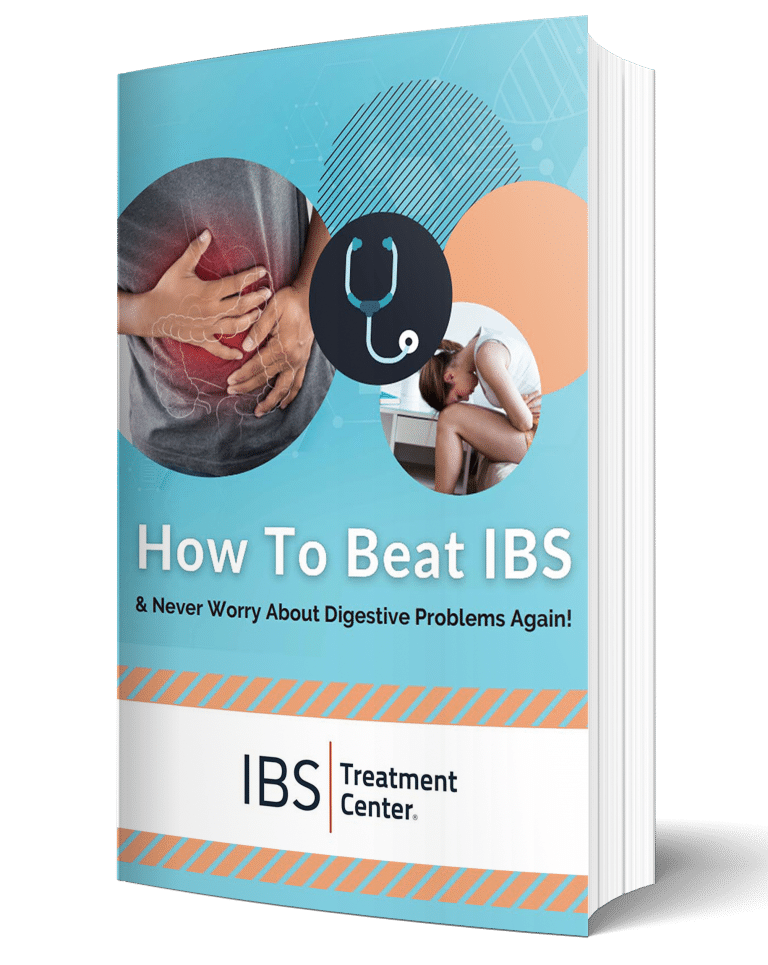Here’s what we’re going to cover
- What is IBS -D?
- What Other Symptoms Might You Have with IBS-D?
- What Causes IBS-D?
- How to Treat IBS-D
There are many different forms of IBS, and IBS-D is the version of irritable bowel syndrome that is predominantly diarrhea. But there are many different types of IBS-D, different causes, and different treatments. Most people probably think that IBS is always about diarrhea, but believe it or not, less than half of people who suffer from IBS have IBS–D. And IBS-D can come in a lot of different varieties.
What is IBS -D?
Some people have diarrhea nearly every day, and may have multiple bouts per day. Others have it at regular intervals, once every day. And others have a diarrhea attack every few days or once every couple of weeks or so. And some people even have bowel movements that start out normal and well formed, but then end in diarrhea.
Some people have tremendous pain and cramping prior to their diarrhea, or during of even after their diarrhea. While others have no pain at all at any point before or after their diarrhea.
Some people have very urgent and watery diarrhea that they can’t control, while other have a fairly regular bowel movement that are not urgent but happen to be diarrhea.
And even the diarrhea itself can be variable. Some people don’t have what most people think of as true liquid diarrhea, but their stools are loose and not well formed, or are flaky and fall apart really easily, even though they don’t come out as diarrhea.
All of these situations qualify as IBS-D.
And if this is happening to you and you’ve had a colonoscopy and had other things ruled out, then you have IBS-D.
What Other Symptoms Might You Have with IBS-D?

But, you might not have abdominal pain at all.
And you might have gas or bloating. And again, that can range widely in severity.
Or you might not have any gas or bloating.
And you might have nausea, or heartburn or reflux. Or you might not have any of those things with IBS-D.
And there are lots of other possibilities too. If you have questions, let me know in the comments.
What Causes IBS-D?
There are literally hundreds of different causes of IBS-D. You’ve probably heard about a few of them, like SIBO, or Candida, or anxiety, or your microbiome, or gluten intolerance. But the list goes on and on and on and is much longer than this. There is no one or two or even just a few causes of IBS-D. That’s why you are having so much trouble figuring out what it is and how to treat it. And that’s why your doctor is having so much trouble figuring it out too. Because they aren’t experts in IBS-D. They are expert in ruling out lots of other things and getting you to an IBS-D diagnosis.
How to Treat IBS-D
So that’s why you can’t just buy that latest great pill for IBS-D and solve your problem. Because there isn’t one. There are too many possibilities. In order to properly treat IBS-D for the long term, you need to know exactly what the cause is.
You’ve probably tried Imodium or Lomotil or Pepto Bismal, or dicyclomine, etc. Those are fine if you only very rarely have diarrhea. But those aren’t a solution if you have IBS-D, because you need to do far more than just treat the symptoms, which is all those do. You need to find out exactly what is causing your symptoms.
An IBS specialist can help you figure out what that is, and then help you figure out exactly how to treat it. And that’s very different than seeing a gastroenterologist and having a colonoscopy. That is not going to help your IBS-D.
If you found this video helpful, please give it a thumbs up and subscribe to my channel for information about your digestive health.
And if you need more help, we’ve worked with thousands of IBS-D patients via telemedicine to help them get their lives back. And we can work with you too, regardless of where you live. So please don’t hesitate to give us a call. It’s worth getting your life back.
Related Content:
IBS vs IBD. What is the Difference?
How Do I Know If I Have IBS?
The 5 Symptoms of IBS
How to Solve Constipation

Dr. Wangen is the founder and medical director of the IBS Treatment Center, the award winning author of two books, and a nationally recognized speaker on digestive disorders. He has been on ABC, NBC, and Fox as well as public radio, and was named one of Seattle’s Top Doctors by Seattle Magazine.

